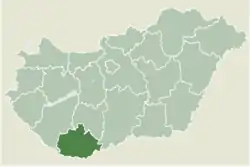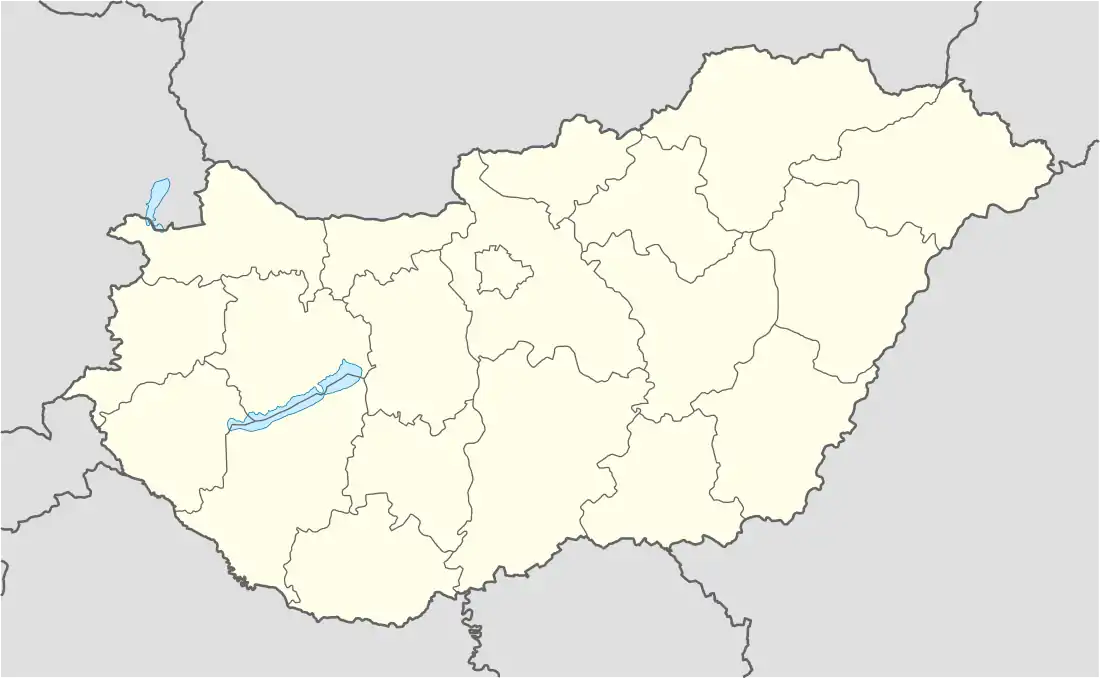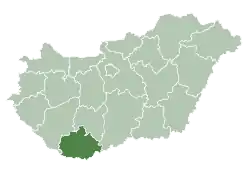Kisjakabfalva
Kisjakabfalva (German: Jackfall; Croatian: Jakubovo[1]) is a village in Baranya county, Hungary. Until the end of World War II, the majority of the inhabitants were Danube Swabians, also called locally as Stifolder, because their ancestors once came in the 17th century and 18th century from Fulda (district).[2] Mostly of the former German settlers were expelled to allied-occupied Germany and allied-occupied Austria in 1945–1948, as a result of the Potsdam Agreement.[3] Only a few Germans of Hungary live there, the majority today are the descendants of Hungarians from the Czechoslovak–Hungarian population exchange. They occupied the houses of the former Danube Swabians inhabitants.
Kisjakabfalva
Jackfall | |
|---|---|
 Location of Baranya county in Hungary | |
 Kisjakabfalva Location of Kisjakabfalva | |
| Coordinates: 45.89603°N 18.43625°E | |
| Country | |
| County | Baranya |
| Area | |
| • Total | 6.62 km2 (2.56 sq mi) |
| Population (2004) | |
| • Total | 157 |
| • Density | 23.71/km2 (61.4/sq mi) |
| Time zone | UTC+1 (CET) |
| • Summer (DST) | UTC+2 (CEST) |
| Postal code | 7773 |
| Area code | 72 |
References
- Živko Mandić (2005). "Hrvatska imena naseljenih mjesta u Madžarskoj (Croatian Names of Inhabited Places in Hungary)" (pdf). Folia Onomastica Croatica 14. (Note: English abstract on page 128.). p. 60. Retrieved 2017-04-01. (in Serbo-Croatian)
- https://www.feked.hu/etc/Stifolder_tortenet.pdf.
- "Die Vertreibung – Landsmannschaft der Deutschen aus Ungarn".
This article is issued from Wikipedia. The text is licensed under Creative Commons - Attribution - Sharealike. Additional terms may apply for the media files.

